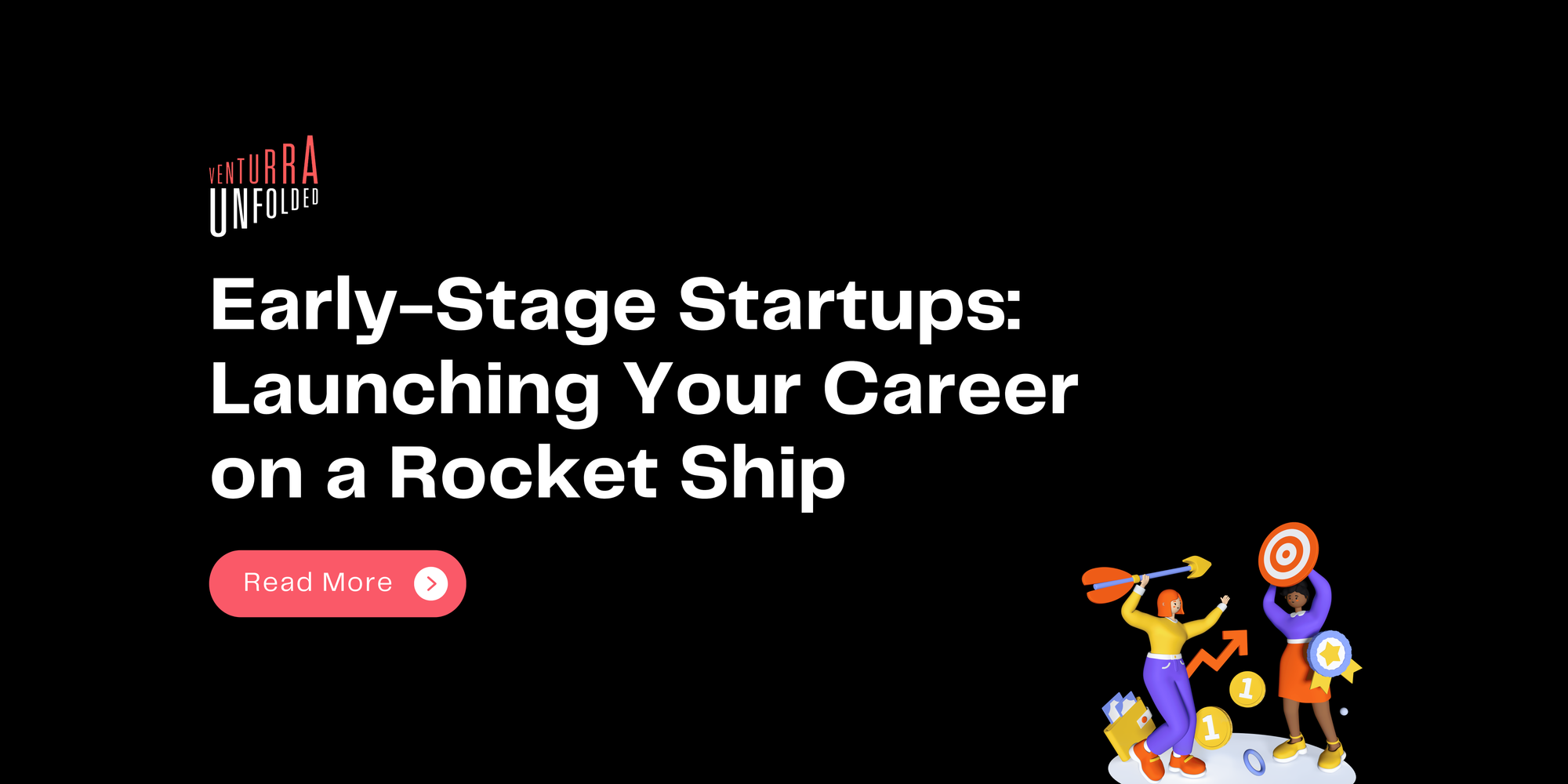Early-Stage Startups: Launching Your Career on a Rocket Ship (Without Getting Burned)

The allure of a startup is undeniable. The chance to be part of something from the ground up, to see your ideas come to life, and to make a real impact – it's an exciting prospect for any ambitious young professional. But is the startup life for everyone?
Why Early-Stage?
Let's address the elephant in the room: why choose an early-stage startup over a more established company?
- Fast-paced Growth & Learning: Imagine a role where taking initiative and making key decisions is encouraged, with the potential for those decisions to have a real impact. Early-stage startups are a breeding ground for rapid learning. You'll likely wear multiple hats, gaining a broad understanding of marketing, sales, product development, data analysis, and customer insights. The learning curve is exponential, and you'll be surprised at how much you can achieve in a short time.
- Ownership & Impact: Early-stage startups are all about survival, and your contributions will be directly tied to the company's success. You'll be immersed in the company's vision and mission, understanding the "why" behind your work. This sense of ownership and purpose can be incredibly motivating. Some startups even offer equity (ESOPs) to early employees, allowing you to share in the company's growth.
- Career Acceleration: Due to the lean nature of early-stage startups, there's often more room for advancement. Your contributions can be quickly recognized, leading to promotions and opportunities for leadership roles that might take years in a larger corporation.
But It's Not All Sunshine and Rainbows
There's a flip side to the coin. Working in an early-stage startup can be challenging.
- Uncertainty & Risk: Startups are a gamble. There's a chance the company might not succeed, especially in the pre-seed and seed stages. You'll need to be comfortable with some level of financial risk.
- Pressure & Adaptability: Every day can be a scramble for survival. Priorities can shift quickly, and you'll need to be adaptable to keep up. Expect to wear multiple hats and be comfortable with ambiguity.
- Limited Resources: Early-stage startups are often resource-strapped. Data may be messy or non-existent, and you might not have the luxury of a formal onboarding process. Be prepared to be resourceful and solve problems with limited tools.
Is Early-Stage Right for You?
This path might be ideal for you if:
- You're hungry to learn and grow quickly.
- You enjoy a challenge and thrive in a fast-paced environment.
- You're comfortable with taking initiative and making decisions.
- You can adapt to change and embrace ambiguity.
- You're motivated by a strong company mission and want to see your work make a real impact.
Finding Your Rocket Ship
Ready to take the plunge? Here are some tips for finding an early-stage startup that's a good fit:
- Network: Attend startup events and conferences, connect with VCs and startup founders on LinkedIn.
- Research: Follow tech blogs and publications to identify promising early-stage companies.
- Reach Out: Don't be afraid to send cold emails to CEOs or hiring managers expressing your interest and highlighting your skills.
Remember: Great startups are always on the lookout for talented individuals with the right attitude. So, if you have the passion and drive, don't be afraid to take a chance.
The early-stage startup world offers an unparalleled opportunity for growth, impact, and an incredible career launchpad. Just be prepared for the wild ride!

